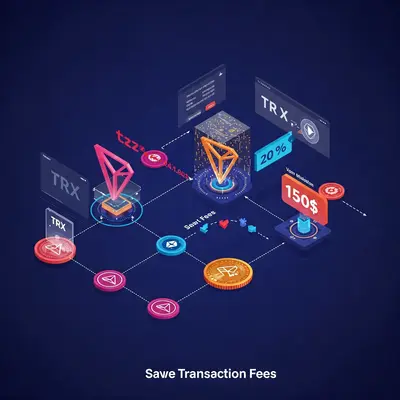Blog Post
Read our latest blog posts and stay updated with the latest trends and insights in the blockchain industry.
Explore a wide range of topics and discover valuable information that can help you enhance your
knowledge and skills.


By Chaingateway
May 2, 2022
Ethereum used to be the most popular smart contract platform on the planet, and the go-to choice of most blockchain developers.
The cryptocurrency world and blockchain systems are complex but as the number of people that join them increases, so does the interest in knowing how they work. There are tons of processes that take place in blockchains and the more informed you are on them, the higher your chances of making educated decisions will be.
One of the processes that we are going to talk about in this article is a smart contract. We’ll be explaining what a smart contract represents, how it works and what are its benefits. So, without any further ado, let’s start listing all the details.
In order to understand how smart contracts work, you need to know what they represent. A smart contract is an automated execution process that runs when predetermined conditions are met. The process executes the agreement between a buyer and a seller and is directly written into code.
Smart contract programs are stored on blockchains and thanks to them, intermediatory involvement is taken out of the equation and a lot of time is saved. Not only that but smart contracts are used to automate workflows. Once the conditions of one process are met, the next action is triggered automatically.
Thanks to smart contracts, transactions and agreements are made without the need of a central authority or any other external enforcement system. Hence, they are one of the tools that allow blockchains to be highly decentralized.
When it comes to efficiency, Ethereum is able to process around 15 transactions per second. This means that the average transaction time is about 5
Now that we are familiar with what smart contracts represent, it is time to explain how they work. They operate on simple code-written statements on a blockchain. These statements are “if,” “when,” “then,” etc.
When the predetermined conditions are met and verified, a network of computers executes the necessary actions. These actions represent numerous types of activities:
When the transaction is completed, it is written on the blockchain and hence, it cannot be altered in any way. Moreover, the only parties that can see the results are those that have been granted access. The number of stipulations in every smart contract is up to the participants as they can add as many stipulations as they please.
Participants need to agree on the rules concerning “if/when…then…,” determine how their data is shown on the blockchain, define a framework for solving potential issues, etc. The smart contract is developed by a developer.
One interesting fact about smart contracts is that they were first proposed by Nick Szabo in 1994. Szabo invented Bit Gold in 1999. Bit Gold is a virtual currency that was established a whole decade before Bitcoin.
Thanks to his success, many people labelled Nick Szabo as the man behind the Satoshi Nakamoto pseudonym, but he denied all of these rumours. Just a reminder, Satoshi Nakamoto is the person that invented Bitcoin and to this day, no one knows his/her true identity. People don’t even know whether Satoshi is an individual or a group of people.
There’s no denying the fact that smart contracts come with a few benefits that allow the blockchain system to be efficient, transparent and decentralized. We are more than happy to provide you with these advantages so let’s check them out below.
As mentioned earlier, by using smart contracts, third parties are taken out of every transaction and the process is far more direct. Encrypted data is shared only between the two parties and the data cannot be changed. Hence, it is impossible to alter the data and transparency in each transaction is present.
The more parties are involved in a certain transaction, the longer it will take for the transaction to be processed and completed. That is the reason why payments with regular methods like credit and debit cards can take up to 5 business days to be finalized. On the other hand, when smart contracts’ conditions are met, they are executed right away.
Thanks to the fact that third parties are taken out of the equation, smart contracts cancel all additional fees that may be charged with every transaction. Thanks to that fact, these programs can actually save you money.
Finally, each transaction made on blockchains is encrypted and each transaction is connected to the ledgers. Thanks to that fact, your security is taken to the next level. The reason why it is almost impossible to hard to hack is that hackers would need to alter the whole ledger just to gain access to one transaction.
The blockchain system is powered by tons of processes, each of which is important as it allows it to remain stable and active. One of those processes is the smart contract. To make sure that you are provided with the best service, you must always make sure that you choose a platform that is efficient and effective with these programs.
Share This Post
Enter your email to receive our latest newsletter.
Don't worry, we don't spam

chaingateway

chaingateway

chaingateway
Explore the differences between blockchain and traditional databases, focusing on control, architecture, immutability, and performance.
Compare Binance Smart Chain and Ethereum to find out which platform is best for your decentralized application or token.
This blog post explains what Tron fees are, why they matter, and how they work on the Tron blockchain network.